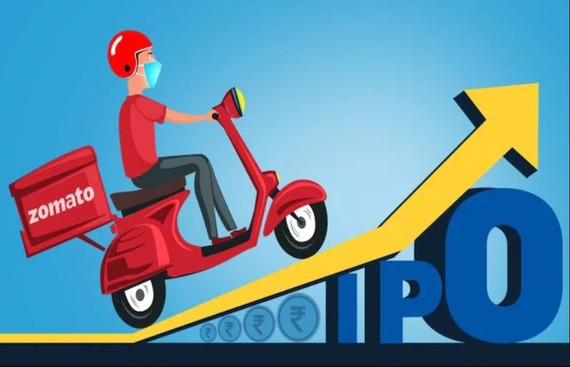IPO amid Technological Antognism: Here's How Zomato Did it

It's raining unicorns in India. In the first four months of 2021, fourteen startups have already made it to the list. And the present rate of spawning unicorns, or startups with at least a billion dollars in valuation, is almost three per month. However, the actions are only in private markets with invisible evidence of the digital economy trades openly. It elucidates the anxious enthusiasm over the week's initial public offering (IPO) by one of the country's two leading online food-delivery services. As China becomes strict on data-heavy businesses from finance to ride-hailing, Zomato Ltd, confirmed by Jack Ma's Ant Group, is developing its IPO in India to Rs 93.75 billion ($1.3 billion) due to its high demand.
At the helm of the showed value range, the app would have a market worth of nearly $8 billion, or 45% more than Jubilant Foodworks, which possesses the South Asia establishment of Domino's Pizza. Though Jubilant covers around a fourth of its income into earnings before interest, tax, depreciation and amortization, Zomato's actions regularly lose money hand over fist.
Cynics may concern about paying such a massive amount for an unbeneficial business. To hopeful people, however, the misfortunes at Zomato are suggestive of Meituan's long term excursion to predominance. China's third-biggest traded on an open market tech firm had begun as a Groupon clone, providing deals and discounts. It later added layers of Uber Eats-type online food conveyance and Yelp-style eatery audits into an all-purpose super-app. Zomato, which bought Uber Eats' India business before the pandemic—offering the US ride-hailing company a near-10% stake as a trade-off—is hoping to get from Meituan's playbook.
Yet, does it seem too late for that? Ventures like Ant, Alibaba Group and Didi Global, which worked around large-scale processing data, are unexpectedly under a regulatory cloud in Beijing. Likewise, Meituan has gone through a monopoly probe. What's the danger that New Delhi, as well, will go the same way, disturbing estimations that India would offer investors a refuge from the US-China tech cold conflict?
Having concerns are apparent. Major giants from Amazon.com to Facebook's WhatsApp and Twitter, US companies are having trouble keeping the market open and striking. New Delhi [seems to have] equipped its information technology and consumer security regulation to target them. Legislation on personal data security, and another on the usage of non-personal information, might be up subsequent. That could be significant for Zomato.
Acquiescence costs for handling online data will self-evidently rise. Indeed, even offline business practices could consider under greater scrutiny. A restaurant association has asked India's competition regulator to inquiry Zomato and rival Swiggy for apparently charging extravagant commissions and coaxing dining venues to bid discounts to uphold listings on their apps. Recently, a restaurateur griped on Twitter about Zomato's approach to rebuff food joints for request scratch-offs. Amid high unemployment, it's conceivable that the government will need to drive the expense of gig-economy labourers' social security to stages that don't straightforwardly utilize them. Zomato had almost 170,000 delivery partners in March.
Still, the final state of India's emerging digital economy is not clear. The chances are that a few enormous super-applications would arise. In a joint venture with Facebook and Google, one might be fuelled by Mukesh Ambani, India's most extravagant man. The other may be the Tata Group, a conglomerate that trades everything from Tetley tea to Jaguar cars.
For Zomato to put itself in third place, it must discover collaborators to extend beyond food and health complements into additional services such as payments. Indonesia's GoTo, a newly declared blend of e-commerce website PT Tokopedia with ride-hailing and delivery firm Gojek, offers a convincing model.
The set-up of Zomato's share sale is opportunistic. After an initial vibrate, Zomato showed its efficacy during the pandemic, when diners were restricted at home. Meanwhile, unexpected liquidity support from the central bank has the fairness market packed in cash. Info Edge India, the app's largest stakeholder, would get an attractive partial exit as a reward for composing the juvenile company a $1 million cheque in 2010.
What interests here now is Zomato's way to benefit. At $137 million, its effective cash burn last fiscal year was less than half the annual rate just before covid and more than covered by private investors. As of this moment, nonetheless, the measure raising will need to be handled by public shareholders. They might want to see Zomato pull off keen acquisitions that fetch both scale and cash flows. As China's strict regulatory action has amply shown, the strength of customer information alone will not form a manageable canal.
Amazingly, Zomato's expensive feast has shown up hot, beating other Indian unicorns. For sheer dread of passing up a great opportunity, investors need to dive in. For the less daring, there's forever Domino's pizza.
